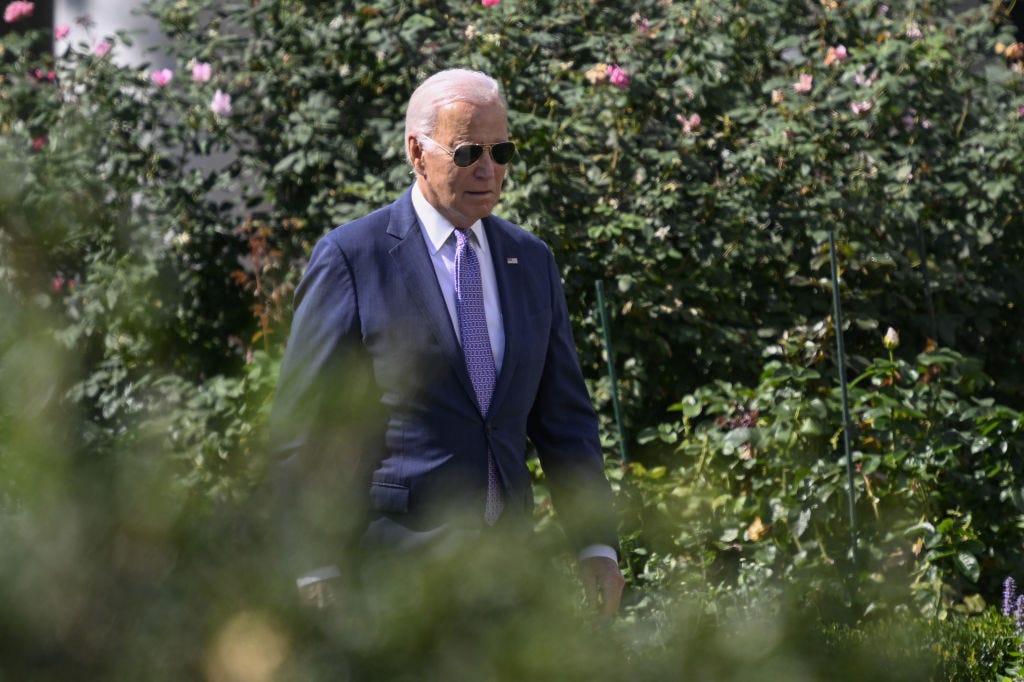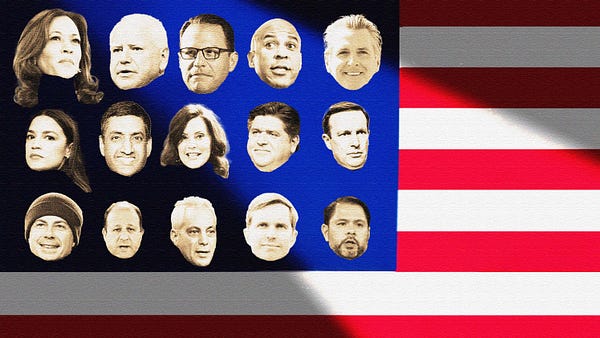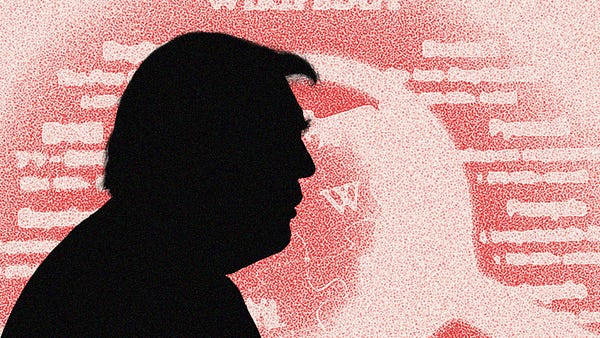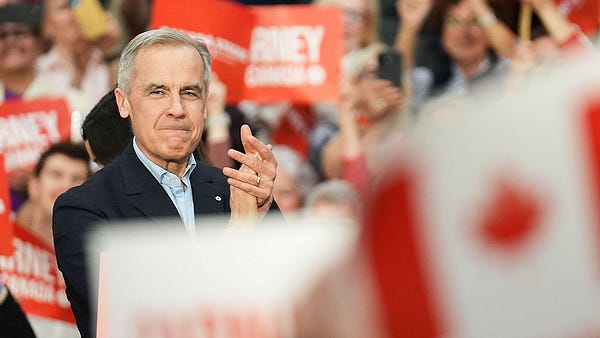
The Free Press

It’s been an interesting experience getting my feet wet on Substack. The platform really does seem to attract a more politically diverse audience than my old stomping grounds at FiveThirtyEight. And I’m sure that will be even truer for this story, which is being co-published at Silver Bulletin and The Free Press.
I’m sure I won’t agree with every Free Press reader on everything, and vice versa. (The same is true at Silver Bulletin, frankly.) But one thing I do share with readers of both is a skepticism of mainstream media narratives. Although campaign coverage is much improved from the Boys on the Bus days of a generation ago, politics still begets its share of evidence-free groupthink.
Today’s case in point: Robert F. Kennedy Jr. inching closer to a third-party bid. Media coverage has focused on the downside risks for Democrats. A recent New York Times story, for instance, is full of fretting Biden backers:
Matt Bennett, a co-founder of the centrist Democratic group Third Way, has been helping coordinate Democratic efforts to stop the No Labels [third party] effort. He said the hope in the party has been that Mr. Kennedy would “go away” after losing primaries to Mr. Biden.
“It would be very bad” if Mr. Kennedy runs as a Libertarian, Mr. Bennett said. “We’ve been very clear that third parties in close elections can be very dangerous and would almost certainly hurt the president. That would be true of a No Labels candidate and it would be true of RFK.”
Bennett is overconfident when he says a Kennedy run would “almost certainly” hurt President Biden. I think the evidence is much less clear, and if anything points the other way: toward a Kennedy bid being helpful on balance for Biden.
Maybe Bennett is an overconfident guy in general. “Joe Biden will beat Trump or another GOP nominee in a head-to-head contest,” he wrote in a July 20 email advertising a Third Way strategy briefing. Although it’s too soon to take the polls all that seriously, that’s a strong claim to make about a guy who is struggling as much as Biden has been recently.
There’s a Lot of Mythology About Third-Party Bids
Democrats are primarily skittish about third-party candidates because of two elections, 2000 and 2016. In 2000, Ralph Nader received 1.6 percent of the vote in Florida and 2.7 percent nationally, and probably did cost Al Gore the presidency. But that is mostly just because the election was so close—determined by only 537 votes in Florida. A fair number of Nader voters actually had Bush as their second choice.
Meanwhile, although the 2016 election was also close—coming down essentially to 80,000 votes between three states—the presence of third-party candidates Gary Johnson and Jill Stein probably did not change the outcome. Stein received only about 1 percent of the vote nationally, and based on survey data, many of her voters would have sat out the race if they hadn’t voted for her. The same survey found that a plurality of Johnson’s voters would have broken for Trump.
Nervous Democrats might also point to 1992. George H. W. Bush wasn’t a Democrat, but like Biden, he was an incumbent who voters were unhappy with for his handling of the economy. In that race, Texas billionaire Ross Perot received 18.9 percent of the vote. However, a strong scholarly consensus holds that Perot did not cost Bush the election. Bill Clinton’s margin of victory over Bush was fairly wide, and analysis of exit polls suggest that Perot took more votes from Clinton than Bush, if anything.
Having looked at data on dozens of third-party candidates in other races (mostly for offices like Congress and governor) when building election models, I’m skeptical that they serve as spoilers as often as their critics claim. Third-party support tends to collapse down the stretch if the candidates aren’t seen as viable. Johnson, for instance, polled as high as 10 percent in polling averages early in the 2016 race before falling to 5 percent in the final polling averages and then getting only 3.3 percent on Election Day.
Third-party candidates typically also get less support in swing states, where voters know a protest vote could be more costly.
Polls Show Trump Supporters Think More Favorably of Kennedy
For the sake of argument, let’s say that Kennedy does prove to be a factor in 2024. Why the widespread assumption that Biden has more to lose than Trump? As my former FiveThirtyEight colleague Nathaniel Rakich has pointed out, polls fairly consistently show Kennedy with stronger favorable ratings among Republicans than Democrats:
Source: FiveThirtyEight
These trends have grown over time as voters have gotten to know Kennedy better, seen how he’s opposed Biden, and come to realize that a lot of Kennedy’s policy positions are actually pretty conservative.
You might also note that there’s quite a bit of variation in Kennedy’s ratings from poll to poll. I have a couple of theories about this: one is that it may depend in part on how polls define who’s a Democrat. Some Kennedy supporters may be lapsed “Democrats in Name Only” who are no longer on board with the current aims of the party. For instance, voters who share Kennedy’s skepticism about vaccines once had more of a home on the left than they now do.
Voters may also differ in their views of Kennedy depending on their level of political knowledge. A voter who hasn’t yet thought much about the campaign might assume from the Kennedy name that RFK Jr. is a standard liberal Democrat, or maybe even a leftist one like his campaign manager Dennis Kucinich. Someone who watches more political news, conversely, might know that some of Kennedy’s positions are heterodox if not outright conservative. Polls of likely voters will capture a more knowledgeable set of voters than polls of all adults.
The July poll from The New York Times and Siena College provides some helpful hints on where Kennedy’s support comes from and exactly how it divides along partisan lines:
Let me point out a couple of nerdy details. One is that RFK Jr. is relatively popular with people who didn’t vote for a presidential candidate in 2020. That makes sense; his views aren’t particularly well-represented in either party coalition. However, this implies that Kennedy would pull some of his votes from the sidelines of the American electorate rather than from Biden or Trump.
Note also that Kennedy does worse among 2020 Biden voters than among Democrats. What does this mean, exactly? It means some of Kennedy’s supporters are anti-Biden Democrats. However, crucially, those anti-Biden Democrats mostly voted for Trump in 2020 if they voted at all. This is the best piece of evidence for a Kennedy run helping Biden. He may provide an off-ramp for voters who are fed up with Biden but would also like an excuse to not have to vote for Trump.

RFK Jr.’s Issue Positions Aren’t a Good Fit for the Normie Dem Suburbs
The New York Times/Siena poll also finds that Kennedy—like Trump—does better with voters who did not go to college. That may be because he diverges from Democrats on a series of issues that are cultural touchstones for college-educated progressives:
Kennedy has consistently advanced vaccine-skeptical positions, and this is a well-known part of his public record. Post-Covid, there is a huge partisan split in views of vaccines, and this puts Kennedy on the opposite side of the issue from most Democrats.
Kennedy appeared to endorse a national abortion ban after 15 weeks. He later backed off that position, but there is video of the statement and both the question and answer are relatively clear. Considering how important the Dobbs decision was to Democrats’ overperformance at the midterms, you can be certain that clips like these will be in constant rotation in ads paid for by Democratic groups.
Kennedy has been skeptical of U.S. efforts in Ukraine. Voters generally do not vote on foreign policy, but this is yet another touchstone issue for college-educated liberals; think of all those Ukraine flags in Twitter bios.
Finally, Kennedy has said he doesn’t think it’s realistic to reduce gun violence, that he’s “not going to take people’s guns away,” and that the issue has been “settled” by the Supreme Court’s interpretation of the Second Amendment.
Guns, abortion, vaccines, and Ukraine are quite a quartet of issues to defect from the Democratic Party on, particularly from the suburban, college-educated base that Biden and other Democrats have increasingly come to rely upon.
Kennedy has other similarities to Trump. He may not have reached the same level of celebrity as Trump, but he has appeared on his share of magazine covers. And like Trump, he has sometimes endorsed conspiracy theories. I’m sensitive to complaints that what gets labeled a “conspiracy”—just like what gets labeled as “misinformation”—is a subjective question. But Kennedy has expressed a number of views, like on the link between vaccines and autism, that are outside of the scientific consensus. He has also claimed that Covid vaccines are “ethnically targeted” in claims that were denounced by the Anti-Defamation League. Like Trump, Kennedy has even claimed that a presidential election was stolen—only in Kennedy’s case, it was the 2004 election, which he baselessly said was stolen from John Kerry.
Still, Kennedy’s Effects Are Hard to Predict
Now that I’ve explained why I think Kennedy is more likely than not to help Biden, let’s acknowledge some counterarguments.
First, it’s been pointed out that some of Kennedy’s biggest backers are Republican megadonors, who presumably don’t have Biden’s best interests in mind and see Kennedy as a thorn in the president’s side. My general view, as someone who’s spoken with more billionaires than you might think (they come up a lot in the new book I’m working on), is that wealthy megadonors tend to have poor political instincts. Nor is there going to be any shortage of anti-Biden messaging whether or not Kennedy runs. Still, the notion that Biden is being “attacked from all sides” could be harmful to the president.
An argument I find more persuasive is that Trump has a higher floor but lower ceiling on his support than Biden does. In the most recent YouGov polling, for instance, 25 percent of registered voters have a very favorable view of Trump, and 51 percent have a very strongly unfavorable one. Biden views are a pinch less polarized (21 percent very favorable; 44 percent very unfavorable). In that case, then Trump’s die-hards might stick with him—even if they also like Kennedy.
So far, there haven’t been many polls that actually tested the three-way matchup, although one this week from Echelon Insights found that Trump had a 3-point lead that expanded to a 4-point lead when Kennedy was added to the ballot. A poll from a super PAC that backs Kennedy found that Kennedy drew more support from Trump than a typical independent, however. (Although you mostly shouldn’t trust polls put out by campaigns or interest groups.)
Ultimately, the question may come down to what sort of campaign Biden wants to run. If he thinks he can win a referendum on his presidency and the economy—well, in some ways having two challengers to divide the opposition makes that easier. But if Biden wants a campaign laser-focused on Trump, then Kennedy adds a wrinkle to that plan.
It’s also possible that Kennedy would bring about a campaign that, at the margin, is a little bit more focused on the ideological contrasts between the political parties. Biden might actually prefer that to one focused on his age, especially if there’s more discussion on issues like abortion where Democrats’ position is popular.
I don’t want to be too wishy-washy here. If I’m Biden, I’d probably take a 60/40 chance that Kennedy helps me rather than hurts me. But that’s partly because I wouldn’t be all that confident about my chances to begin with.
Nate Silver is a statistician and writer. Subscribe to his Substack, Silver Bulletin.
And to support more of our work, become a Free Press subscriber today.
















On the poll results: Both Dems and Reps may thing that Kennedy will hurt Dems more.
That could at least partially explain the poll results. The Reps would love that. The Dems would hate that. The polls seem to only record favorable vs. unfavorable.
If the polls were on specific policy positions of RFK Jr. I think you'd have a stronger point there.
Keep telling yourself that Nate. I know you got the Hillary Clinton win over Trump correct. How was her Presidency? Biden will be abandoned by the Party as well as Kamala when the Left finally realize the they will LOSE! Their hunger for power supersedes any respect for rules, morals because it is WIN AT ALL COSTS! RFK, Jr. will hurt the Democrats! The name KENNEDY and the Democratic Party are one. What will happen is the Progressive Left will destroy the party as they try to WIN AT ALL COST. RFK, Jr will expose the Progressive Left while insuring their implosion.